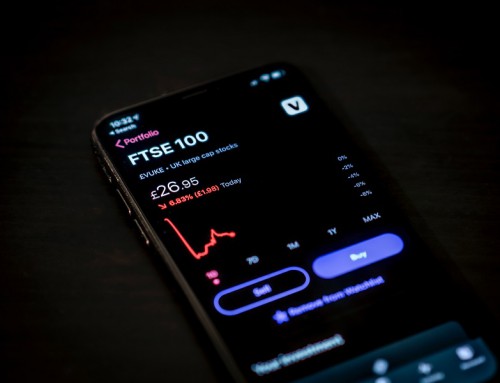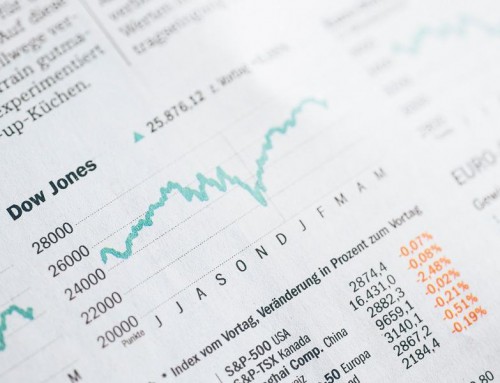How to start investing money is a common question many people ask themselves once they have some spare money lying in their bank account. Typically this happens perhaps around the late 20s or early 30s when one is more stable financially and career-wise. To begin to look at the various options, we would have to clearly define what the word invest entails. To invest in something is to give up the present value of money in return for a higher sum at a later date. To be rewarded with a higher sum, one has to undertake a certain risk. The higher the risk would usually result in a higher expected rate of return. To understand what you should be investing in and how you should be doing it, you would first have to understand your investment personality.
Low-risk taker: You are not willing to undertake much uncertainty. Small fluctuations will cause you much uneasiness. You will keep looking at your investments on a weekly or even daily basis. You cannot afford to lose any money. It will make you extremely uncomfortable.
Medium-risk taker: You are willing to accept some uncertainty in exchange for potentially higher returns. You are ok to put some of your money in slightly riskier investments and you are comfortable with losing a small part of your investment if it does not work out.
High-risk taker: You are willing to accept a large amount of uncertainty in exchange for higher returns. You are looking at double-digit returns and are willing to risk a substantial portion of your investment to potentially make a large profit. You understand that the value of your investments may fluctuate in the short term and will not be uncomfortable if there are losses in the short term so long as the plan works out in the long term. You are not going to check on the value of your investments very often if nothing changes in the investment environment.
Please note that this is just a loose definition of the various investment personalities. To have a more accurate analysis, financial advisors will usually get clients to fill up a questionnaire.
You would also have to take a look at your age. Generally, younger investors should be able to stomach more risk. Older investors, especially those in their retirement years should not be dealing with investments with many risks. I have encountered cases whereby retirees in their 80s were recommended structured notes when all they were looking for was a fixed deposit. The 2008 Global Financial Crisis showed the world that no bank is immune when the market goes south.
Next, you would have to look at your financial commitments. A person with a family would have a rather contrasting investment profile as compared to a person fresh out of the university. Some may have other financial commitments which may render them unable to fork out too much money towards investing or make them inadvertently risk adverse.
Finally, you will need to determine the timeframe for your investments. Are you looking for something to mature within a certain timeframe as you will need a lump sum of money for certain purposes? Like for example, you may be looking to grow your money for your child’s university education. Such investments may have a time period of about 15 years whereas a 25-year-old wanting to invest for retirement is looking at an investment horizon of about 40 years.
Once you have determined your risk profile, set aside a certain budget and determined your timeframe, it is time to decide what asset class to invest.
You could place your money in fixed income assets (For low to medium risk-takers)
Fixed income assets are things like fixed deposits or government bonds. There are corporate bonds as well but I would only recommend corporate bonds from well-established companies. You will still need to do some research if you are dealing with corporate bonds and there is a risk that the company may not pay you your return. To place your monies in a fixed deposit, you will need to visit a bank. Rates are usually below 1% and your deposit, up to $50,000 is insured under the Deposit Insurance Scheme. If you are looking to place your money in Singapore Government Bonds, you can do so by purchasing Singapore Savings Bonds (SSB). These are issued by the Monetary Authority of Singapore (MAS) on behalf of the Singapore government. Returns are around 2.6% per annum if you hold till maturity and there are no penalties for redeeming earlier. You merely earn a lesser rate of return. If you have very low-risk tolerance, this is something to seriously consider. Unlike fixed deposits, there is no penalty for withdrawing early.
You could invest in stocks (For medium and high-risk takers)
Stocks are extremely liquid assets especially those that are actively traded on the exchange. This is the main reason why I always favour the stock market. Also, because you can buy stocks in various denominations, you can diversify your portfolio easily in the stock market. For example, if you had USD$20,000 to invest in the stock market, you could set aside USD$4,000 to purchase 20 stocks of Facebook, USD$4,000 to purchase 22 stocks of Facebook, USD$5,500 to purchase 5 stocks of Alphabet (The parent company of Google) and 65 stocks of The Walt Disney Company (Based on an estimated price of $200, $180, $1,100 and $100 respectively). There is a misconception that stocks are extremely risky and many investors look to avoid them but I would say that if you are not dealing with penny stocks and you do read up on companies then investing in well-known companies can be very rewarding for your portfolio. There are many stocks that pay out regular dividends. Some of these dividends can be as high as 5% per annum or even more. I sometimes compare this to collecting rent. The only difference is that you do not have to chase your tenant for the rent if he or she does not pay. Also, you do not have to look for replacement tenants every one to two years and you do not have to grapple with replacing items that are damaged within your property after a while. To me, I find that stocks are easy to understand, provide good yields and capital appreciation if adequate research is done. For this reason, I usually recommend that investors accumulate a healthy portfolio of stocks to complement their investment portfolio of other assets.
You could invest in Singapore properties (For moderately low to moderately high-risk takers)
I have always maintained that Singaporeans are generally placing too much of their monies in investment properties. However, property investment, when done correctly, can be a good tool to grow a person’s wealth. The idea of having a physical asset in one’s portfolio is perhaps a sound one. The issue with property investment is that due to a large amount of money required just to acquire one property, most property investors can only have perhaps one investment property. For most, they may only have one property for the whole of their life and that is the property which they are living in. Thus diversification of properties is a bit difficult as funds are usually limited. The thing about property investment is that you really need to get it right from the start as unlike stocks, you cannot buy a few and anticipate that the gains outweigh the losses. I will always highlight that past performance cannot be an indication for future performance, be it stocks or properties. In the past, we hear stories of people buying landed properties for around SGD$30,000 decades ago and now the value of the same property is close to a few million. Knowledge and non-biased insight must be sought when making purchasing decisions. Investors should not rush into buying a property. It may be the single largest financial commitment for most people.
You could invest in overseas properties (For moderate to high-risk takers)
Overseas properties are also a viable option for property investors. Property investment does not have to be limited to just Singapore. There are many property markets which give good and healthy returns. In many cases, better returns than Singapore properties. I personally am very well versed in investing in Bangkok properties and I took it upon myself that if I were to be an investor, I would want to amass enough knowledge which would allow me to invest wisely as well as advise my clients about that particular market. In many cases, property buyers do not have the required knowledge to invest in overseas property. For this reason, I will put investing in overseas property for moderate to high-risk takers. Information is not readily available and in certain markets, language can be a barrier. The more knowledge the property investor accumulates about that particular property market, the less risky it is for him as he can make a more informed decision. Investors should always look for people who are familiar with the property market.
You could invest in private equity (For moderate to high risk-takers)
For some, they may prefer to employ someone to invest on their behalf. You may have heard of people investing in property funds or some fund investing in sectors like healthcare. Usually, those with large sums of money will employ fund managers to make investments on their behalf. The fund manager is paid and he will receive a part of the profits earned as well. The fund manager is incentivised to undertake risk so long as it is within the constraints of his mandate. The larger the profit, the larger his bonus. That being said, the fund manager with his expertise may be able to make better investment decisions for the investor.
You could invest in derivatives and forex (For high risk-takers)
Derivatives are financial instruments like options, warrants or contract for difference (CFDs). They do not represent a stock in a certain business but are a derived instrument. For example, options are the right to purchase something at a certain price. Most are familiar with an option to purchase for a property. A stock option has the same concept. It is the right to purchase a certain stock for a certain price by a certain date. CFDs are betting that certain stock prices will fall. As you can see, you may lose your whole investment. In some cases, leverage may be used as well. For forex, leverage is usually employed to amplify gains and they can also do the same with loses. For this reason, I would not advise investors to have a large proportion of their money in such investments, even if they are high-risk takers.
You could invest in private businesses (For high risk-takers)
This is like buying shares in a company but instead the company is not listed on an exchange. Rather, these are private companies looking for investors. In some cases, these companies may have a viable business plan but they just require investors to come in with the money to put some plans into action. Private companies may not have their financial statements audited and thus there may not be an accurate depiction of the business. You should seek professional advice from lawyers and accountants to mitigate your risk.
You could invest in alternative investments (For extremely high risk-takers)
Heard of things like cryptocurrencies or investment schemes like land banking? There are many investment schemes out there. Many may amount to nothing but some may yield very high returns. I personally have invested in some cryptocurrencies. Those that I feel have practical real-life application. Values of such investments tend to swing wildly and if you cannot stomach fluctuations, these investments are not for you. Even if you are a risk-taker, you should not place a large proportion of your money in such investments. I personally have less than 5% of my portfolio in such investments.
You could invest in starting your own business or invest in your human capital (For everyone)
Depending on what you are good at, starting a business may be a very viable investment. Investing is taking on some risk financially in the expectation that it will yield a return. I have seen individuals who have worked as chefs for many years take the leap of faith to start their own restaurant. Medical doctors may set up their own private practice and accountants may set up their own accounting firm. All these require some money to be used in the setting up of the business. However, if it does turn out well, it could out as a very good investment. Some may spend money to acquire knowledge. It may be attending a course or getting a degree or pursuing a postgraduate qualification. Monies must be spent to acquire these qualifications but it would mean better job prospects with higher pay.
It is very difficult to know what form of investment will yield the best returns over time. It would be better to make informed decisions by reading up and learning more about the various investment options. There is no one best investment out there and investors should always understand their own investment risk profile to make better investment decisions. When in doubt, seek qualified advice and when it seems too good to be true, it probably is.
Yours Sincerely,
Daryl Lum






